Daniel Sutter: Paying for checked bags
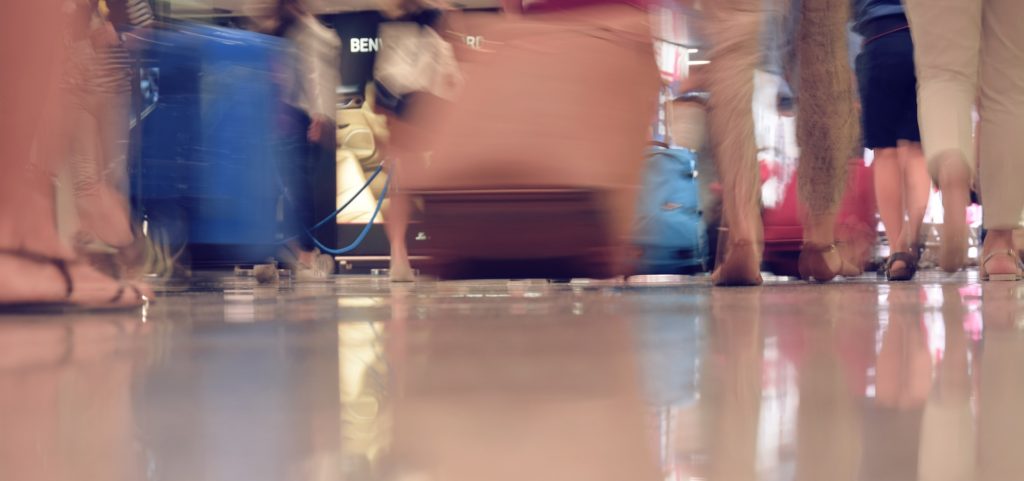
United and Jet Blue recently increased their checked bag fee to $30. Nobody likes paying for things we didn’t used to pay for, like checked luggage. A bill in the U.S. Senate would limit airlines’ checked bag and other fees, which topped $7 billion in 2016. But economics suggests that bag fees can make air travel more efficient, not merely extract money from travelers. American was the major airline to charge for checked bags in 2008. The fee rose from $15 initially to $25, and almost all airlines except Southwest use this fee, while some regional airlines even charge for carry-on bags. Airline credit cards and frequent flier programs often allow free bags. It is tempting but inaccurate to say that until 2008 passengers did not pay for checked bags. Carrying luggage is costly: airlines need larger planes with cargo space and must hire baggage handlers, while extra weight requires extra jet fuel. U.S. airlines are businesses and cannot lose money for too long. Revenue must at least cover costs, with or without bag fees. Prior to 2008, the price of tickets covered the cost of carrying bags, averaged across all fliers. If passengers checked on average one bag each, perhaps $25 of the ticket price would have covered baggage costs. Fliers with many bags would prefer paying a ticket price covering the average number of checked bags, while passengers without bags effectively paid for others’ luggage. Travelers now must pay for checked luggage. This should make air travel more efficient overall. Previously passengers might have checked a bag with contents providing only $10 or $20 of value to them. If the $25 bag fee approximately equals the airlines’ cost of transporting bags, a bag valued at $10 will no longer fly, which is good because it was not worth the cost. My points about bags apply to other airline services like meals and beverages. If airlines do not charge for alcoholic beverages or meals, ticket prices must cover these costs. First class passengers still receive such “freebies” but their expensive tickets certainly cover the costs. Should airlines then charge for everything, including the reading light or the lavatory? Two factors limit charging for everything. One is the cost of restricting access and collecting money from willing users. Electronic payments make collecting fees easier, but lavatories would need to be accessible only after paying. Negative reactions from passengers also matter. People do not like being nickel-and-dimed for every little thing; losing a frequent flyer due to a $3 fee is bad business. Social media now amplifies customer complaints. Until 1978, the Civil Aeronautics Board (CAB) regulated U.S. airlines, including the routes airlines could fly and fares. Forty years of deregulation have reduced fares by 50 percent in exchange for few extra services. Today most Americans can fly at least occasionally; under government regulation, flying was primarily for business travelers and the well-to-do. Senators Markey of Massachusetts and Blumenthal of Connecticut have introduced the Forbid Airlines from Imposing Ridiculous Fees, or FAIR, Act to limit fees of any sort, including for changes or cancellation. Rebooking fees run from $75 to $300 plus the difference in price of the flights. Cancellations can result in seats going unused on high demand flights and thus cost airlines. While these fees seem high to me, airlines know much more about their operations and costs than I do. Competition between airlines for passengers is a better way to keep fees reasonable, fares low, and service quality high. Southwest advertises that bags fly free, and airlines seeking competitive advantage will undercut any excessive fees. If the Senators want to assist the flying public, they should address access to gates at our nation’s airports, a factor which economists find limits competition. Travelers will pay for checked luggage, either through fees for each bag or higher ticket prices. While it is nice when someone pays for us, air travel is more efficient when we each pay our own way. ••• Daniel Sutter is the Charles G. Koch Professor of Economics with the Manuel H. Johnson Center for Political Economy at Troy University and host of Econversations on TrojanVision. The opinions expressed in this column are the author’s and do not necessarily reflect the views of Troy University.
Alabamians reap benefits of Airbnb
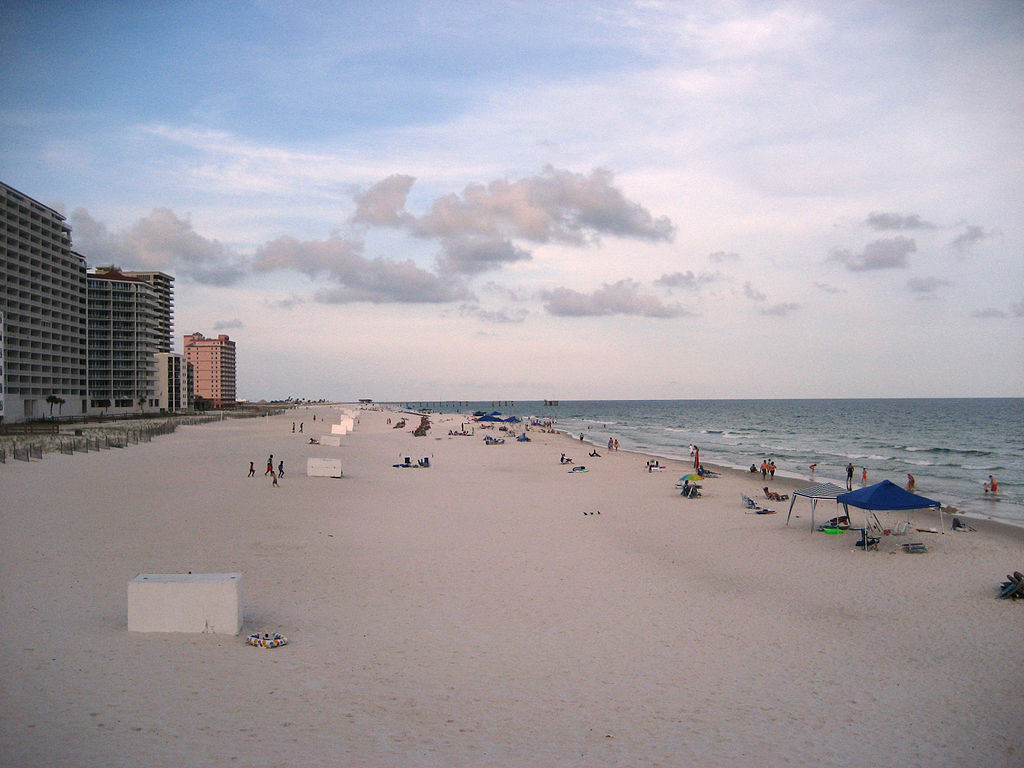
By sharing their homes with beach goers, tourists, and college football fans, Alabamians made over $16 million in 2017 using the popular home-sharing app Airbnb. Airbnb allows short-term accommodation seekers to book rentals online with individual hosts or property owners. According to their yearly totals, compiled from 114,000 guest arrivals in Alabama: The typical Alabama host shared their home 24 nights over the course of the year earning an extra $6,100 in income About 2,100 Alabama families hosted at least one Airbnb guest 57 percent of hosts in state are women Gulf Shores was the most visited Alabama destination, with hosts bringing in 27,700 guests and earning $4.9 million. Birmingham was the runner-up with 14,400 guest arrivals bringing in an extra $1.5 million. Tuscaloosa and Auburn were also popular destinations. Hosts in these cities earned over $1.1 million over the past two football seasons. Airbnb hosts in Alabama did more than make profits in 2017. In September while Hurricane Irma swept through Florida, many Florida residents traveled to Alabama for safe lodgings and to wait out the storm. Airbnb responded quickly and activated their emergency response program in several Alabama cities. The special listings for evacuees, in addition to having no list price, were free from Airnb’s fees and local/state taxes. One host in the Mobile area refunded her guests over $600 for their stay during the hurricane as a chance to “pay it forward.” “Home sharing through Airbnb continues to be a unique and flexible way for Alabama families to make more money, pay their bills, and support their communities,” said Public Policy Director for Airbnb in Alabama, Will Burns. “We look forward to 2018 being another successful year of giving residents in Birmingham, the Gulf Shores, Auburn, and all corners of the state an economic boost, travelers more affordable accommodations, and neighborhood businesses more foot traffic.”
Montgomery makes NY Times’ global list of 52 places to visit in 2018
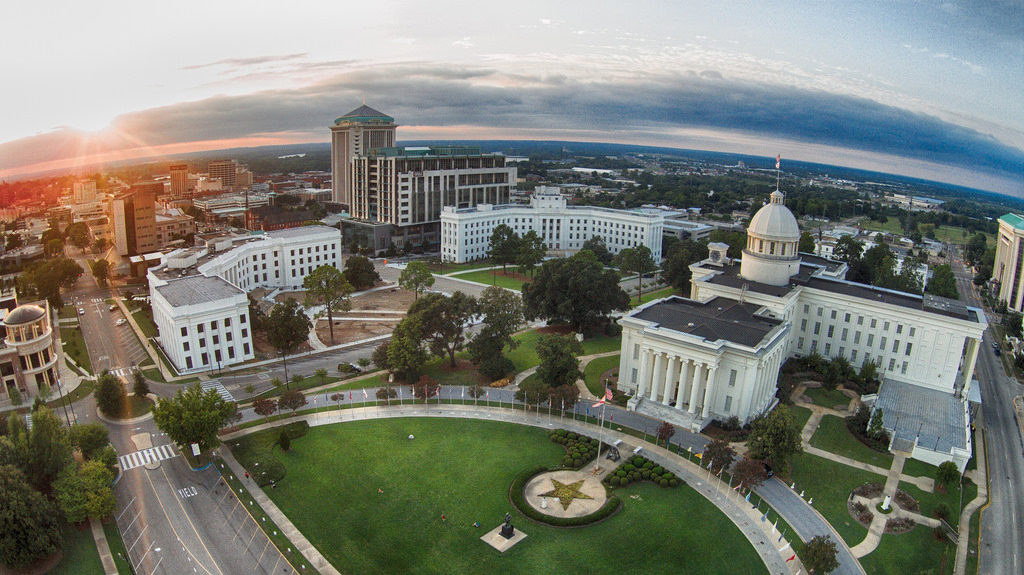
Looking to travel in 2018? There are thousands of getaways across the globe to explore, which is why The New York Times curates an annual list of 52 suggestions as “a starter kit for escaping into the world” to inspire travelers for the new year, and Alabama’s capital city is among them. Coming in at the 49th spot, Montgomery, Ala. joins a handful of other American cities that are listed amongst dozens of international must-sees such as Colombia (“With the war finally over, the entire country is opening up”), Basilicata, Italy (“caves, beaches and more in Italy’s secret southern region”) and Kuélap, Peru (“new access to the fortress in the clouds). The Times cited the city’s upcoming National Memorial for Peace and Justice, the nation’s first memorial dedicated to lynching victims and a new museum dedicated to slavery which opens in the spring, as the top reason to travel to Montgomery this year. A monument to the victims of racial terror rises in a Confederate capital. A number of monuments in Montgomery hail the Confederacy. Come April, one new memorial will speak for the victims of slavery and prejudice. On a hilltop overlooking the city, the National Memorial for Peace and Justice from the nonprofit Equal Justice Initiative will consist of 800 suspended columns etched with the names of over 4,000 victims. Another 800 columns, dedicated to the counties where lynchings occurred, will lie in an adjacent garden until claimed by and erected in those counties.— Elaine Glusac It’s safe to say, the list of “52 Places to Go in 2018,” is finally a list Alabamians can be proud to be a part of.
Fed lawyers deciding next step in Donald Trump travel ban fight
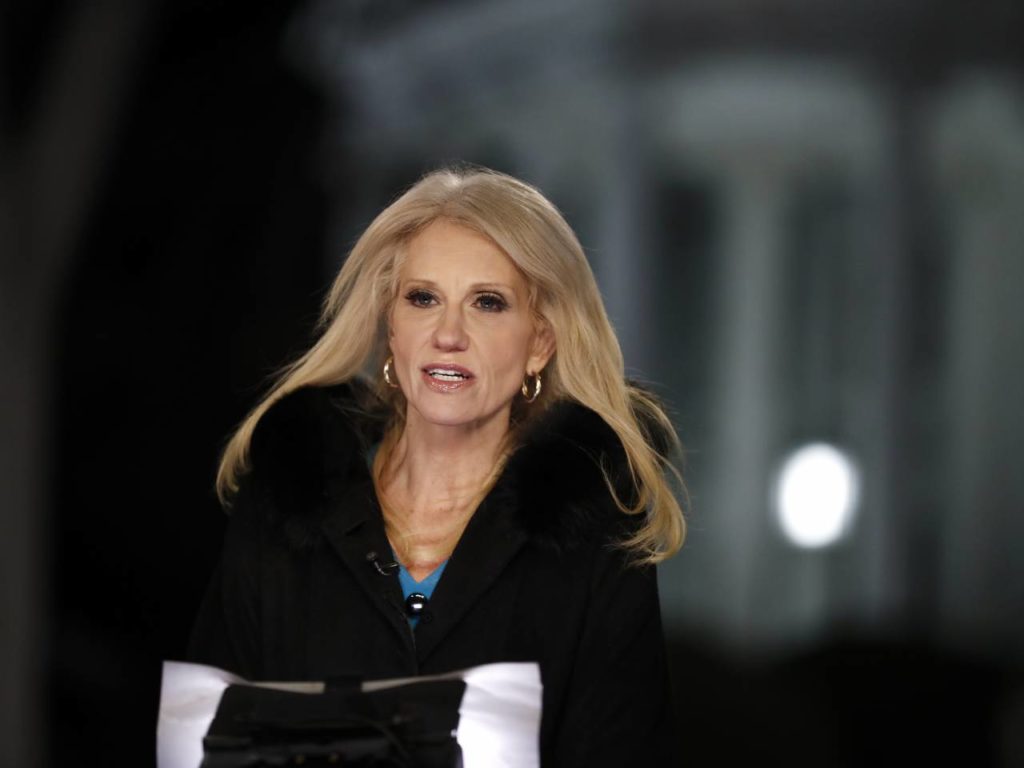
Government lawyers fighting to defend President Donald Trump‘s executive order on immigration said Friday that “all options” are being considered after a federal appeals court ruled against the president’s ban on travelers from seven predominantly Muslim nations. A Justice Department lawyer who spoke at a hearing in Virginia said the administration was weighing whether to challenge a 9th U.S. Circuit Court of Appeals ruling that upheld a temporary block on Trump’s ban, saying it was unlikely to survive a legal challenge. “We may appeal. We may not,” attorney Erez Reuveni said. “All options are being considered.” It could appeal the restraining order on Trump’s travel ban to the U.S. Supreme Court or it could attempt to remake the case in the district court. Reuveni was appearing at a hearing before Judge Leonie Brinkema at which the state of Virginia was challenging the ban. The judge did not rule. She noted that “the status quo remains” because of the 9th circuit’s decision and suggested that a well-reasoned ruling would take time and could not be written “overnight.” Michael Kelly, a spokesman for Virginia Attorney General Mark Herring, said Friday’s hearing in a federal court in a Washington, D.C., suburb posed the most significant state challenge yet to Trump’s order. In a statement, he said it “will be the most in-depth examination of the merits of the arguments against the ban.” Lawyers for Herring, a Democrat, are asking the judge for a preliminary injunction barring the Trump administration from enforcing that portion of the Jan. 27 executive order that bars anyone from those countries — Iran, Iraq, Libya, Somalia, Sudan, Syria and Yemen — from entering the U.S. for 90 days. The state is not challenging that portion of Trump’s order suspending entry of refugees for four months. “If the Commonwealth is successful in securing a preliminary injunction, it would indicate that Virginia is likely to prevail on the merits of its challenge to President Trump’s ban, and it will be a more durable injunction that will last all the way through trial — so potentially weeks or months,” Kelly wrote. In a court document filed ahead of the hearing, Virginia’s lawyers challenge the constitutionality of the executive order and say there is “overwhelming evidence” that the executive order “resulted from animus toward Muslims.” Virginia also says the state, its residents and its public universities are harmed. One example it gives: university students and faculty from countries named in the executive order who are in the U.S. on work or student visas can’t leave for fear of not being allowed back in. Until it was temporarily blocked by a federal judge in Seattle a week ago, the ban made headlines amid tearful stories of families separated and lives upended. Among them were two Yemeni brothers whose family sued in Virginia before the brothers, both green card holders, were allowed back into the country. The federal government has since said green card holders will not be barred from re-entering the U.S. In the specific Virginia challenge, lawyers for the federal government wrote in a court filing opposing a preliminary injunction that Virginia doesn’t have the right to challenge the ban — and that the court doesn’t have the power to review the president’s executive order. “Judicial second-guessing of the President’s determination that a temporary suspension of entry of certain classes of aliens was necessary at this time to protect national security would constitute an impermissible intrusion” on his constitutional authority, lawyers Dennis Barghaan and Reuveni wrote. Even if Virginia’s challenge is allowed to proceed, a preliminary injunction is not warranted, the U.S. government lawyers wrote. Republished with permission of The Associated Press.
Donald Trump takes aim at Dodd-Frank financial overhaul

The Latest on President Donald Trump (all times local): 1:28 p.m. President Donald Trump has signed an executive order that will direct the Treasury secretary to review the 2010 Dodd-Frank financial overhaul. It’s Trump’s first step at scaling back regulations on financial services. Trump has called the law a “disaster” and said it failed to address some of the causes of the 2008-2009 financial crisis. The president has also signed a presidential memorandum related to retirement planning. The administration’s move will delay implementing an Obama-era rule that requires financial professionals who charge commissions to put their clients’ best interests first when giving advice on retirement investments. ___ 1 p.m. The Trump administration says it has thawed its temporary freeze on contract and grant approvals at the Environmental Protection Agency, with all $3.9 billion in planned spending moving forward. A media blackout at the agency also appears to have been partially lifted, as a trickle of press releases were issued by EPA this week. However, the agency still has not posted to its official Twitter feed since President Donald Trump’s Jan. 20 inauguration. The Associated Press and other media outlets reported last week that Trump political appointees had instructed EPA staff not to issue press releases or make posts to the agency’s official social media accounts without prior approval. Contract and grant spending at the agency was also put on hold, prompting confusion and concern among state agencies expecting funding. ___ 12:05 p.m. Foreign leaders and groups are finding new ways to make known their disagreement with President Donald Trump’s policies. An international school in Bosnia announced Friday it would extend scholarships to students affected by Trump’s travel ban on citizens from seven Muslim-majority countries. The United World College’s branch in Mostar said it was motivated by its belief in equal opportunities. In Portugal, the parliament there voted to condemn the U.S. travel ban and highlighted the role of the U.S. to promote tolerance and human rights. In Sweden, Deputy Prime Minister Isabella Lovin posted on Facebook a photo of her signing the country’s new climate law while surrounded by seven female members of her staff. Swedish media say it resembles photos of Trump in the Oval office surrounded by male advisers. ___ 10:25 a.m. President Donald Trump is applauding the January jobs report, saying it shows there’s a “great spirit in the country right now.” Trump addressed last month’s job report, which showed the U.S. economy adding 227,000 jobs and the unemployment rate at 4.8 percent. The report also says that more Americans started looking for work, although not all of them found jobs immediately. Trump is joining business leaders and CEOs in the White House and also previewing some of his economic priorities. He says he expects “to be cutting a lot out of Dodd-Frank,” the financial regulations put in place in response to the Great Recession. The president says they’ll be discussing how to bring back jobs, lower taxes and reduce regulations. ___ 8:15 a.m. President Donald Trump says that a “new radical Islamic terrorist” is behind an attack outside the Louvre Museum in Paris. Trump tweeted early Friday that America needs to “get smart,” in light of the incident. He writes, “a new radical Islamic terrorist has just attacked in Louvre Museum in Paris. Tourists were locked down. France on edge again.” A knife-wielding man shouting “Allahu akbar” — “God is Great,” in Arabic — attacked French soldiers on patrol near the museum Friday in what officials described as a suspected terror attack. The soldiers first tried to fight off the attacker and then opened fire, shooting him five times. There were no immediate details about the identity of the suspect. ___ 7:40 a.m. President Donald Trump says reports of his contentious conversation with Australia’s prime minister are “fake news.” In a tweet Friday morning, Trump thanked Prime Minister Malcolm Turnbull “for telling the truth about our very civil conversation that FAKE NEWS media lied about. Very nice!” Turnbull told journalists that Trump had agreed to honor a deal to resettle refugees from among around 1,600 asylum seekers. Most are in island camps on the Pacific nations of Nauru and Papua New Guinea. Turnbull also said the U.S.-Australia relationship is strong. Australia has refused to accept them and instead pays for them to be housed on the impoverished islands. Trump earlier took to Twitter to call the agreement with Australia a “dumb deal.” ___ 7:04 a.m. President Donald Trump says movie star Arnold Schwarzenegger “tried hard” to make “Celebrity Apprentice” a success, but has failed. In an early morning Twitter post Friday, the president kept alive a theme he brought up a day earlier during his first appearance at the National Prayer Breakfast. Trump, who once hosted the NBC reality TV show, took a pot shot there at Schwarzenegger, the current host and former California governor, over a ratings nosedive for the show. On Friday, Trump said in his tweet, “Yes, Arnold Schwarzenegger did a really bad job as Governor of California and even worse on the Apprentice … but at least he tried hard!” Schwarzenegger responded quickly to Thursday’s remarks in a video on his verified Twitter account, suggesting that he and Trump switch jobs. Republished with permission of The Associated Press.
Black Americans weep for the Obama era and uncertain future

On the night in 2008 when Barack Obama was elected the country’s first black president, many black Americans wept. Eight years later, they weep again for the end of an era some thought they would never live to see — and for the uncertain future they face without him. In Obama, many African-Americans felt they had a leader who celebrated their culture and confronted their concerns. In his wife, Michelle, they saw a national role model who epitomized style and grace with brown skin. Now some regard the election of his successor as the price of black progress and the culmination of years of racist rhetoric directed at the Obamas — at times stoked by President-elect Donald Trump himself. “There’s a great deal of melancholy and fear and despair,” said Lester Spence, professor of political science and Africana studies at Johns Hopkins University. “This is a dynamic that the vast majority of black America has only read about or seen in movies. They don’t understand the potential of what’s coming.” Not all African-Americans are sad to see Obama leaving the White House. But blacks overwhelmingly voted for the president in 2008 and 2012, and fewer than 1 in 10 black voters supported Trump. For many, the events of the final days of Obama’s presidency added to the sense of gloom. With his inauguration fast approaching, Trump took to Twitter last week to bash Rep. John Lewis, a civil rights legend who was nearly killed marching for voting rights in Selma, Alabama in 1965. Trump said Lewis was “all talk, talk, talk — no action or results.” On Monday, the president marked his last Martin Luther King Jr. holiday before he himself enters the annals of history. On Friday, he will be replaced by a chief executive who questioned Obama’s birthplace and offended many blacks during his campaign by describing dangerous “inner cities” in need of “law and order.” Perhaps nowhere was the surreal moment more evident than at the Smithsonian National Museum of African-American History and Culture, where a sea of black faces gathered to say goodbye and to celebrate a history of struggle and progress. “This year marks the most significant, most poignant and really the most important Martin Luther King Jr. celebration of my lifetime,” said James Peterson, professor of English and Africana studies at Lehigh University. “There’s never been a clearer case, in terms of presidential politics and the general direction of the country, where King’s edicts are more pertinent than they are now.” Some in the crowd were descendants of slaves. Some survived segregation. Others were too young to have known anything other than a black president. Many made a deliberate decision to be there on this holiday at the end of a historic presidency. For black Americans, the museum offers “proximity to black culture, black history and the power of black social movements. You can steel yourself,” Peterson said. “There’s a reason folks will find solace in just being there.” Throughout the museum are milestones of black suffering and achievement. Watching a video of the 1963 March on Washington, Charles Phillips of Philadelphia worried about whether dark days lay ahead. “I think we’re going to be in for some bad things,” said Phillips, who wore an Obama T-shirt he bought during the president’s first term. “To come to a place like this, it touches you, to see what we went through — and are hopefully not going to go through in the next four years.” Looking at an exhibit with photos of a smiling, waving Obama family during the 2008 inauguration, Kim Taylor became emotional. Though she had visited the museum five times since it opened in September, she cried for the first time as she reflected on the progress of the civil rights movement and Obama’s historic presidency. “I don’t know if we’ll ever have another black president,” said Taylor, of Capitol Heights, Maryland. “I made a point to be here. I just wanted to be a part of history, to have that closeness with other black people.” Jerrod Lemmons and his wife, Dee, were in town from Waxahachie, Texas, for the weekend, taking their daughter on a college tour of Howard University. But stopping by the museum was also important. Being there during Obama’s last days in the White House was humbling and bittersweet, Jerrod Lemmons said. His head dropped at the thought of Trump taking office at the end of a week that began with King’s birthday. “I don’t believe he supports us,” Lemmons said of the president-elect. “He doesn’t see value in who we are as a people.” Sitting outside of the exhibit on sports, he reflected on African-Americans’ sacrifices, failures and victories. “It all comes down to: What are we going to do?” Lemmons said. “We all have a responsibility to each other. This museum reminds us exactly of that.” Jewelle Mason, also visiting from Philadelphia, came to the museum hoping, just maybe, that Obama might show up. He didn’t. But she let out a contented sigh that she was able to be there on King Day, savoring the final days of Obama’s presidency. “It’s nice to know that now he’s a part of the history,” Mason said. “That’s something they can never take away from us.” Republished with permission of The Associated press.
Robert Aderholt urges constituents to plan ahead for international travel in 2017
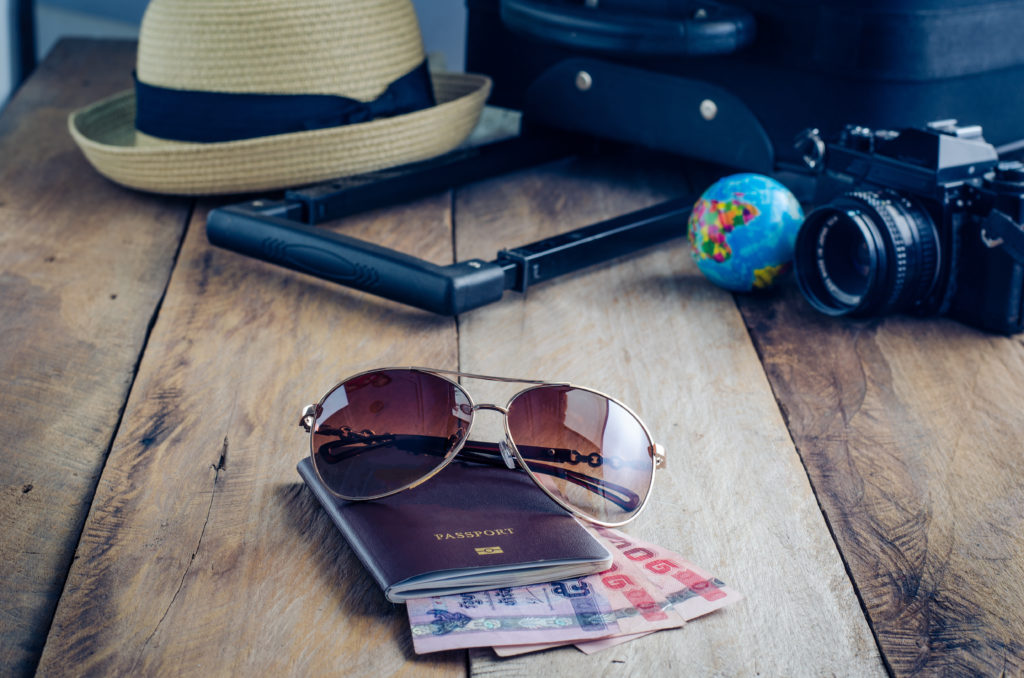
As cooler winter weather moves into the Yellowhammer State, Alabamians will soon be dreaming about warm spring getaways and summer vacations. Which is why, on Wednesday, Alabama 4th District U.S. Congressman Robert Aderholt released a Public Service Announcement regarding international travel in 2017 to ensure constituents prepare well ahead of their trips in order to avoid complications. “While winter has just begun, it won’t be long before Alabamians will start making plans for their spring break and summer travel,” said Aderholt. “If your plans involve international travel, you will want to find your passport now to make sure it won’t expire within six months of your travel dates. Aderholt went on to explain passport complications he’s seen many constituents face when trying to take international trips. “Not only can you not enter a foreign country if your passport has expired, many will not let you enter if your passport is set to expire within six months,” Aderholt continued. “Too often, we get calls from frantic travelers who, after getting to the airport, realize they can’t depart on their trip because their passport is set to expire. Fortunately, in some cases, we have been able to help the traveler, but in others their entire vacation was ruined with no refunds from airlines. “So, as you are putting away your Christmas decorations and dreaming of a vacation on a sunny beach overseas, take time to check your passport. You do not want to spend your vacation in a passport office or worse, losing hundreds of dollars.” For more information on applying for a passport and renewing a passport, please visit the following websites: Applying for the first time Renewing a passport


